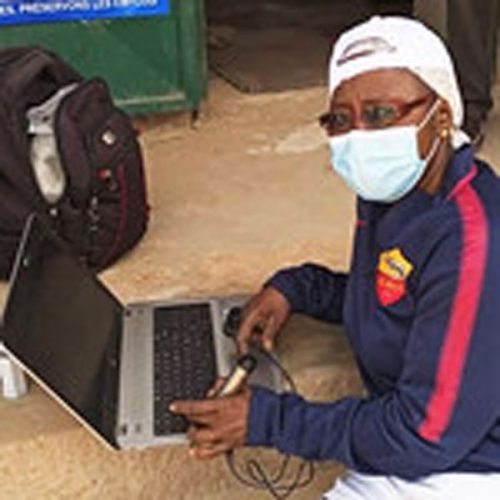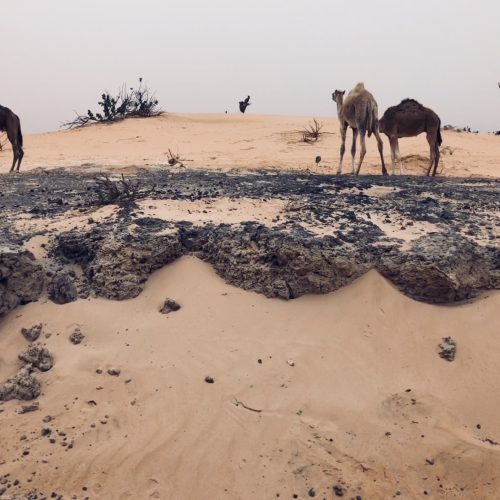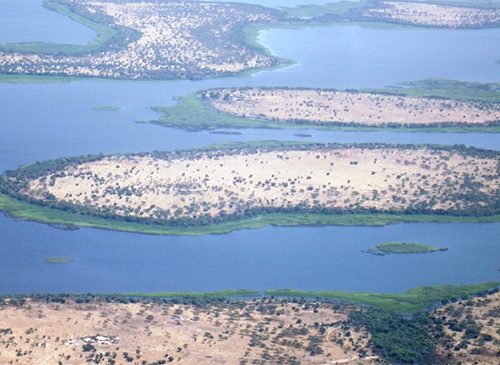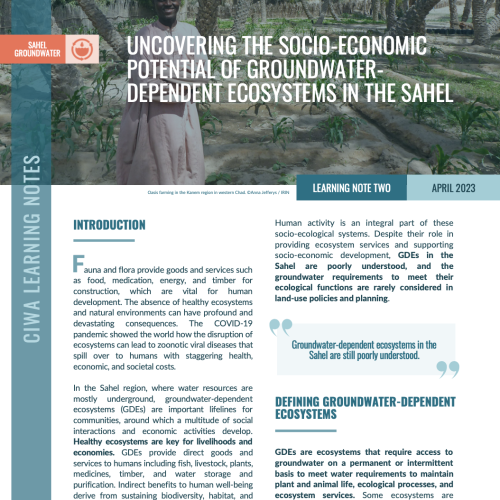WEST AND CENTRAL AFRICA
West and Central Africa faces increased climate impacts, including prolonged drought and unpredictable rainy seasons causing flooding in the Sahel, which also suffers from fragility, violence, weak institutions, and political instability. In a region with widespread gender inequality, women are more affected than men by these conditions. CIWA worked to improve water resources management by identifying investments and policy actions and addressing knowledge and capacity gaps. It also conducted a Water Security Assessment in Lake Chad as the first step toward developing a transformative water security framework for addressing the region’s challenges.
Lake Chad Transboundary Cooperation
- Year started: 2013
- Status: Active
- Key Partner/s: Lake Chad Basin Commission (LCBC)
The Lake Chad Basin is home to one of the highest concentrations of extreme poverty and protracted high-intensity conflict in the world, making it one of the most challenging places to govern. To address this, the Lake Chad Dialogue Project was established, which developed a basin-wide conceptual groundwater model. This was followed by the Lake Chad Transboundary Water Security technical cooperation, which established a consultative process with key Basin stakeholders to explore the linkages between water security and major challenges such as fragility, conflict, and violence (FCV) and climate change. Additionally, the Lake Chad Development and Climate Resilient Action Plan was developed, leading to the design of a large IDA-funded regional investment program for recovery and stabilization (PROLAC) approved by the World Bank in 2020. All of these efforts contribute to providing water to the more than 30 million people living in the four countries surrounding Lake Chad, making it a highly significant and essential resource.
In 2023, a regional stakeholder meeting reviewed the WSA and deep-dive analyses and develop recommendations for water priorities. More focused workshops were held to gather feedback from the field and finalize these products, thereby improving understanding of the perspectives and priorities of countries and the overall basin. Moreover, these workshops will also obtain stakeholder feedback and buy-in to identify key water security needs, improve the model for supporting transboundary waters management, and continue advancing progress toward recipient-executed work.
Visit the Lake Chad Basin Commission website
Back to topImproving Water Resources Management in West and Central Sahel
- Year started: 2019
- Status: Active
- Key Partner/s: Multiple Water Resources Management (WRM) organizations
The Volta Basin, spanning six West African countries – Benin, Burkina Faso, Cote d’Ivoire, Ghana, Mali, and Togo – is mainly located in Burkina Faso and Ghana, accounting for 43% and 42% of the basin area respectively. Unfortunately, the Sahel region, in which the basin lies, is one of the poorest in the world and has the lowest levels of human capital. It is further compounded by climate change, with the Niger River Basin being particularly affected; 70% of its population is currently facing food insecurity due to climate variability.
The Improving Water Resources Management in West and Central Sahel technical cooperation aims to improve water resources management by identifying pragmatic investments and policy actions, as well as addressing critical knowledge and capacity gaps. Through this cooperation, the World Bank has conducted a review of its engagement in transboundary waters in West Africa over the last two decades and a diagnostic of water resources issues in Burkina Faso. Additionally, a framework for discussions between Ghana and development partners on investment priorities has been developed, as well as a rapid sector review and conceptualization of an integrated water security and services program in Cote d’Ivoire. A rapid analysis of water security challenges and recommendations for engagements on regional security has also been completed, and small-scale and nature-based solutions for water storage in the Western Sahel have been recommended. Moreover, a preliminary diagnostic of civil society organizations (CSOs) has been conducted, with the goal of involving them to empower vulnerable and socially excluded groups in decisions around water resources.
Back to topThe Sahel Groundwater Initiative
- Year started: 2020
- Status: Closed in 2023
- Key Partner/s: Multiple Water Resources Management (WRM) organizations
Lake Chad is an essential resource for the more than 30 million people living in the surrounding countries of Chad, Cameroon, Niger, and Nigeria. Unfortunately, the basin is also home to some of the world’s highest levels of extreme poverty and ongoing conflict. The Sahel Groundwater Initiative was launched to address these issues, providing solutions to remove constraints and limitations on the use of groundwater for small-scale irrigation, reviewing the status of groundwater assessment and exploration capacity in the Western Sahel, and facilitating regional cooperation around the development of groundwater expertise in the Sahel. Through their analysis and typology of groundwater-dependent ecosystems, CIWA has identified data gaps and existing barriers to gender equality, including in access to groundwater for irrigation, groundwater management activities, and careers in the hydrogeology field.
A CIWA Learning notes series is available under the Resources section.
DISCOVER OUR PUBLICATIONS
Watch, read and listen more on CIWA’s engagements in West and Central Africa.

This podcast is set to discuss how the World Bank through the CIWA Program is exploring ways to offer a joint master’s degree in groundwater in the Sahel through a conversation with Dr. Seynabou Cisse Faye, working in Dakar’s Cheikh-Anta-Diop University as Associate Professor.

The CIWA-funded Sahel Groundwater Initiative, a technical assistance program that aims to strengthen groundwater knowledge and management capacity in the Western Sahel region, focuses on three outcomes. Read the latest blog on the initiative.

Several factors led the Lake Chad Basin Commission (LCBC) request for the Cooperation in International Waters in Africa (CIWA) Program’s support to generate, share and manage knowledge. Read our latest blog on how water security is important in the conflict-climate risk trap in the basin.

Utilizing groundwater is undeniably essential for increasing shared prosperity in the Sahel – especially since surface water is so scarce. Read the new Learning Notes series dedicated to the results of the Sahel Groundwater Initiative.


